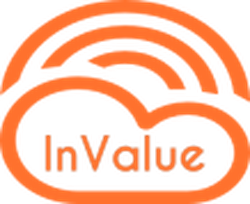October 2021 - October 2024
EFICAS
Energy Efficient Heterogeneous Artificial Intelligence Platform for Autonomous and Embedded Systems
Support Program: 1509 - TÜBİTAK International Industry R & D Projects Support Program
Today, Autonomous and Mobile applications do not work with the desired performance due to power limitation, and therefore business models with high income potential are prevented. Increasing functional complexity with artificial intelligence; It increases the processor load and power requirement of embedded systems and makes them comparable to the power needed for propulsion systems. Within the scope of the proposed project, it is aimed to develop a scalable software platform for general use that uses energy efficient artificial intelligence algorithms called EFICAS. Artificial intelligence algorithms will be developed using multi-core heterogeneous computing technologies. EFICAS will support localized and distributed computing systems and any off-the-shelf solutions, including uploading to the cloud. With the EFICAS platform, studies will be carried out on resource planning (resource allocation at runtime) and optimized task planning and consistent hybrid operation (hybrid coherent operation). With EFICAS, it is aimed to significantly increase the energy efficiency of artificial intelligence in the fields of mobile and autonomous robots, telecommunications and industrial automation. The EFICAS project consortium will be carried out with 21 innovative and expert institutions from 4 different countries.
November 2021 - August 2023
MUWO
Application Platform with Multi-Functional Methods for Production Systems
Support Program: 1509 - TÜBİTAK International Industry R & D Projects Support Program
Production companies try to present their products to the customers in the best way by making various investments according to the characteristics of the sector and the size of the company. While making this effort, maximum investment is tried to be made by considering the highest production numbers in the future projection in general. While these investments continue with new projects and products, companies start to have difficulties in growing despite the good situation in the market. Independent and intensively mechanized investments bring with them two main problems. Areas within the factory begin to become insufficient, and new systems for each project bring high investment costs. Machine-automation investments, which are generally made according to the highest production capacity, significantly reduce the use of the product in the initial and final stages. The aim of the Muwo project is to produce solutions for the above-mentioned problems and to provide improvements.It aims to develop a multi-method workspace that allows workstations in the production area to quickly switch between manual and automated production. Intelligent hardware interfaces of new tools and hardware elements to be integrated into existing production systems will be developed. In order to integrate it into existing processes, first of all, the process unifying software that will use artificial intelligence and machine learning algorithms that create the optimal configuration that provides better use will be integrated with the planning, decision support tool and simulation tools to be developed.
June 2021 - June 2024
TIoCPS
TRUSTWORTHY AND SMART COMMUNITIES OF CYBER-PHYSICAL SYSTEMS
Support Program: 1509 - TÜBİTAK International Industry R & D Projects Support Program
In recent years, increasing energy costs have revealed the necessity of controlling energy systems with safe and smart devices and with smarter structures for both those who use energy and those who produce it. These smart structures necessitate the exchange of information over the internet and the combined use of distributed systems. The TiOCPS project is to ensure the security of the connections between the physical devices connected to the internet and the energy provided to the end user with smarter and more reliable devices.
The TiOCPS project will aim to enable the creation of new technologies and services to create a unified energy model that European Union energy partners can benefit from. The core of the project will be pre-alarming vehicles, real-time recovery, and services to energy providers and distributors. The TiOCPS project will process real-time, interoperable, large and heterogeneous data to produce solutions to energy consumption problems with smart energy algorithms and security solutions, artificial intelligence supported ontology studies and optimization algorithms. Auto protection and collaborative and operational control units will ensure the energy supply, energy consumption and stability and reliability of the energy grid.
July 2021 - July 2024
WINS
WIRELESS IOT NETWORK SYSTEM
Support Program: 1501 - TUBITAK Industry R&D Projects Support Program
The WINS project is directly related to Internet of Things, Cloud Computing and Embedded Systems technologies and has the following features: - Compliance with standard/next generation communication infrastructure and protocols that can meet some or all of the energy needs with wireless, low power consumption, energy harvesting technique - Fault-tolerant, self-calibrating, connecting endpoint devices with various sensors and sensors to the server, displaying smart behaviors against adverse situations (when communication is lost with the relevant device and/or platform), capable of data recording, working in industrial conditions, providing, monitoring, controlling applications, - Mobility can be provided, can work in real / near real time, has preventive features against data loss and high data security, is compatible with the Internet of things, - Resistant to data errors, corruptions and losses, fast data transfer compatible with the cloud, can be directly connected to the cloud, can be adapted to environmental conditions, real/near real-time hardware and software will be developed. - The infrastructure created by the realization of the project will enable the development of applications that are not within the scope of the project.
July 2014 - September 2017
INVALUE
Industrial Enterprise Asset Value Enablers
Support Program: 1509 - TÜBİTAK International Industry R & D Projects Support Program
In the manufacturing and automotive sector more comprehensive service and automation solutions relying on information across the whole deployment chain will become predominant in the near future, ensuring the best availability and utilisation (asset management) of machinery worldwide. The implementation of such processes relies heavily on the rigorous employment of the latest ICT concepts.
The main goal of InValue is to support these new paradigms by developing and demonstrating an open and shared integrated service platform that supports the overarching data management processes in today’s industrial domains across the whole value chain of information. The InValue platform will rely on existing standards while combining novel and integrated solutions for the content and knowledge management of heterogeneous information derived from various sources. This includes information acquisition and aggregation, representation, analysis and exchange between smart devices, automation systems, information systems and the involved stakeholders, like technical and management staff as well as suppliers and customer organisations.
InValue enables companies to build specific applications upon a shared information architecture encompassing new relationships between business partners and customers, finally implementing the 'boundless enterprise' paradigm.
September 2014 - January 2017
WATER-M
Unified Intelligent WATER Management
Support Program: 1509 - TÜBİTAK International Industry R & D Projects Support Program
Only 2.5% of the world’s water is fresh water. In recent decades, the human population has increased by a factor of 3, but at the same time water demand has increased by a factor of 6. Water is a finite resource that should be carefully managed. However, more than 50% of the world’s population lives in areas with a water sustainability problem. In this regard, water industries are using SCADA technologies to support their business processes, but this is clearly not enough. To solve the water sustainability problem, which is compounded by the water process complexity, a major upheaval of the water industry is needed with the introduction of novel concepts, such as GIS integration, quality management programs or real-time data management. In this context, ICT technologies are needed to drive these challenges. The scope of the Water-M project enables the creation of new products and services to build a unified water business model that will benefit European Union water stakeholders. The Water-M project combines real-time monitoring and operational control, service-oriented approaches and event driven mechanisms in the water management domain.
November 2018 - November 2022
POLDER
Urban Data Policy Lab: Policy & Data Exploitation & Re-use
Support Program: 1509 - TÜBİTAK International Industry R & D Projects Support Program
Recent advances in technology, from wireless sensor networks to big data processing and analysis, are changing our cities radically. Urban policymaking is a fundamental aspect of such transformation and can benefit from these emerging technologies with new supporting tools and an optimised process. The POLDER project aims to design, develop and deploy a software tool-suite to support government, city councils and related organisations in the elicitation, design, application and validation of policymaking.
POLDER proposes a hybrid policymaking model, where policy is made:
- Data-driven
- Model-driven
- Society-driven
July 2018 - July 2021
IOTOPRO
Smart Production Management System for Automotive Industry
Support Program: 1511 - TÜBİTAK Priority Areas Research Technology Development and Innovation Projects Support Program
The aim of our IoToPro project is to develop various components for smart production systems in the automotive industry in line with the Industry4.0 goals and to ensure the smooth integration of these components.Our project includes the improvements to be made in the titles of big data analytics, augmented reality applications, internet of objects applications, smart measurement and tracking systems, m2x hardware and software. In addition, the development of cloud platform-related services and algorithms, machine learning, decision support algorithms and augmented reality studies are also targeted.
October 2018 - October 2020
AGV (SMART FACTORIES)
Development of autonomous carriers and necessary human-machine and machine-machine interfaces for Smart Factories
Support Program: 1003 - TÜBİTAK Priority Areas R&D Projects Support Program
In this project; It is aimed to realize the autonomous carrier vehicle (AGV) to be used in the factories of the future and the human-machine, machine-machine interfaces and communication platforms required for their integration with the entire in-factory system.
Various difficulties are encountered in the effective and efficient use of the existing AGV (Automated Guided Vehicle) systems. In addition, considering the autonomy requirements of the smart factories of the Industry 4.0 approach, it has revealed the need to develop an AGV suitable for the complex and semi-orderly environments of the factories, that can move inside and outside the factory and integrated with the factory systems. In the literature, although some technological levels have been passed in autonomous vehicle studies, especially in smart cars, there is a need for special studies for different application areas. In this sense, new studies are required at the level of full autonomy in indoor environments. Detection, High Level Control, Low Level Control, Situation Awareness etc. for the effective and efficient use of AGVs. The autonomous control architecture must be implemented in a way to ensure the integrated operation of subsystems with different features. On the other hand, in order to ensure integrated factory performance, AGVs must be integrated into the whole factory system and work in harmony with each other. In order to achieve this, AGVs, factory employees, existing MRP / ERP systems, and other robotic systems must work integrated as a complex system to ensure autonomy at the factory level. In this project, a system design and implementation are planned to ensure autonomy at both AGV level and factory level.






